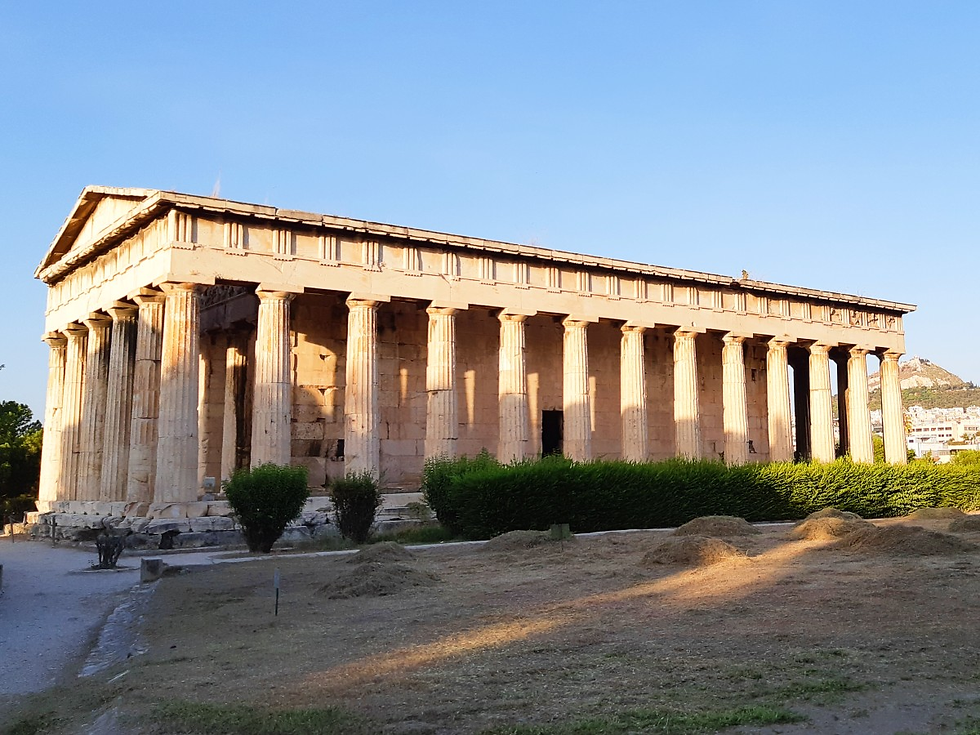Historical significance and cultural heritage
- Johnny Ka
- Jul 23, 2023
- 3 min read
Updated: Jul 24, 2023

Introduction:
Nestled in the heart of Greece, Athens stands as a testament to the enduring power and historical importance of human civilization. With a rich tapestry spanning over 3,000 years, this remarkable city has played a pivotal role in shaping the world as we know it today. In this review, we delve into the historical importance of Athens, exploring its legacy as the birthplace of democracy, philosophy, and the arts.
The Birthplace of Democracy:
Athens holds the distinction of being the birthplace of democracy, an ideology that has had a profound impact on political systems across the globe. In the 5th century BCE, Athens pioneered a revolutionary system of governance that emphasized citizen participation, equality, and the rule of law. The reforms initiated by visionary leaders like Cleisthenes and Pericles laid the foundation for democratic ideals that continue to influence societies worldwide. Athens' democratic principles shaped the development of Western political thought, fostering a belief in individual rights and civic engagement that transcends time.

Philosophical Legacy:
Athens stands tall as the epicenter of philosophical thought, nurturing some of the greatest thinkers in human history. The city was home to luminaries like Socrates, Plato, and Aristotle, whose philosophical inquiries and teachings continue to resonate centuries later. Socrates, the father of Western philosophy, challenged conventional wisdom and encouraged critical thinking. Plato, his student, explored concepts of justice, ideal governance, and the nature of reality in his dialogues. Aristotle, in turn, delved into diverse disciplines, including ethics, logic, and natural sciences. Their ideas and methodologies have profoundly influenced fields ranging from politics to science, leaving an indelible mark on intellectual inquiry.

Architectural and Artistic Marvels:
Athens stands as a living testament to the architectural and artistic achievements of ancient civilizations. The Acropolis, crowned by the iconic Parthenon, stands as the epitome of classical Greek architecture. This magnificent complex served as a sacred precinct dedicated to the goddess Athena and symbolized the cultural and political supremacy of Athens. The harmonious proportions, intricate carvings, and refined craftsmanship of the Parthenon exemplify the genius of ancient Greek architects and sculptors.
Beyond the Acropolis, Athens boasts numerous architectural gems that reflect its historical importance. The Temple of Olympian Zeus, one of the largest ancient temples ever built, showcases the grandeur and power of ancient Greece. The Ancient Agora, a vibrant marketplace and center of political life, allows visitors to immerse themselves in the atmosphere of ancient Athenian society.

Art flourished in Athens, with renowned sculptors like Phidias and Praxiteles producing awe-inspiring masterpieces. Sculptures such as the Athena Parthenos and the Hermes and Dionysus statues reflect the skill and creativity of ancient Greek artists. These artistic achievements not only adorned temples and public spaces but also embodied the ideals and aspirations of ancient Athenian society.
Cultural and Intellectual Center:
Athens was not only a center of political and philosophical thought but also a vibrant hub of cultural and intellectual exchange. The city hosted annual festivals, including the Great Dionysia, where tragic and comedic plays were performed, showcasing the creativity and dramatic prowess of playwrights like Aeschylus, Sophocles, and Euripides. These theatrical performances were a platform for social commentary and moral introspection, reflecting the values and concerns of Athenian society.

Education also held a central place in Athenian life, with schools and academies nurturing the minds of the city's youth. The Academy, founded by Plato, and the Lyceum, established by Aristotle, attracted students from across the Mediterranean, fostering a spirit of intellectual curiosity and inquiry.
Conclusion:
Athens, Greece, occupies a unique position in history, standing as a timeless beacon of historical importance. Its legacy as the birthplace of democracy, philosophy, and the arts has shaped the trajectory of human civilization. The principles of democratic governance, critical thinking, and artistic expression that emerged from this remarkable city continue to resonate in our modern world. A visit to Athens is not only a journey through time but also an opportunity to pay homage to the historical importance of a city that has left an indelible mark on our collective consciousness.




Comments